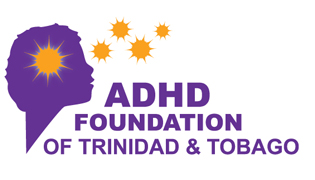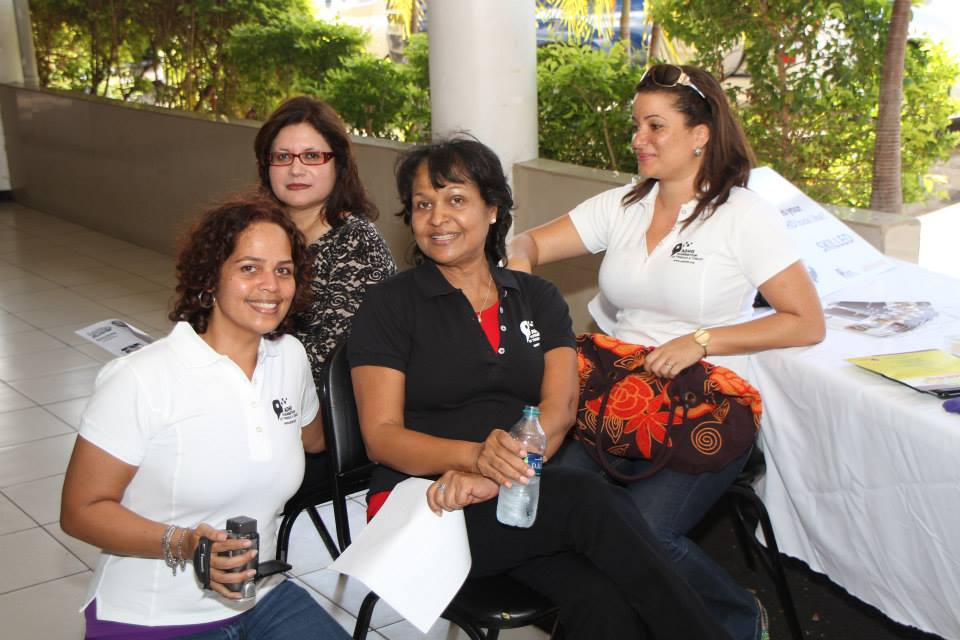Few mental health conditions have provoked more debate and controversy in recent years than Attention Deficit [Hyperactivity] Disorder (ADD/ADHD).
In the Caribbean, particularly in Trinidad and Tobago, there is limited cultural emphasis on the importance of mental health, and strong stigma and skepticism around psychological conditions that are not apparent to the naked eye.
When Mary Fullerton’s daughter first told her that her son had ADHD, she dismissed the idea.
“Quite simply, I didn’t believe in ADHD,” Mary says.
‘I don’t believe in ADHD and I don’t want him in my class’“I figured she was just being dramatic, or just not understanding how to be a parent. She was called into school frequently, and then one day I went with her. The teacher was saying ‘I don’t believe in ADHD and I don’t want him in my class’. Only then I realised just how much of an impact that our disbelief in ADHD can have.”
Mary began to do her own research into the condition, which proved to be the beginning of a significant learning process that changed her views on the matter.
Together with her colleague Ariane Garib, she founded the ADHD Foundation of Trinidad and Tobago in 2012, dedicated to raising awareness of the condition and providing access to resources for families in need.
What is ADD/ADHD?
 Research indicates that ADD/ADHD is a result of an imbalance of chemical messengers or neurotransmitters within the brain. There is also strong evidence indicating that there is a genetic component to ADD/ADHD, as it tends to run in families; and also that certain factors can affect a child’s development during pregnancy, delivery or early infancy.
Research indicates that ADD/ADHD is a result of an imbalance of chemical messengers or neurotransmitters within the brain. There is also strong evidence indicating that there is a genetic component to ADD/ADHD, as it tends to run in families; and also that certain factors can affect a child’s development during pregnancy, delivery or early infancy.
“There’s ADD and ADHD — someone with ADD may stare into space and dream, whereas someone with ADHD has the hyperactive element and can’t sit still,” explains Mary.
“Of course, children develop and behave differently, and there will always be those who have some of these traits but don’t necessarily have the condition,” adds Ariane. “But if a child does have ADD/ADHD, and we don’t realise that need for special attention, that child will not have a chance to successfully learn or develop as it should.”
ADHD occurs in children, teens and adults, males and females, and people of all ethnicities, and is characterised by three core symptoms:
- Inattention – Difficulty paying continuous attention
- Hyperactivity – Excessive movement and restlessness
- Impulsivity – Premature and thoughtless actions
| Inattentive Symptoms | Hyperactive Symptoms | Impulsive Symptoms |
|
|
|
It is important to note that persons with ADHD do not ‘grow out of it’, though they can learn to successfully manage the symptoms.
Often, adults have ADHD but are not aware of it, as they have never been diagnosed.
Some of the signs of ADHD in adults include:
- Anxiety
- Chronic boredom
- Chronic lateness and forgetfulness
- Depression
- Difficulty concentrating when reading
- Difficulty controlling anger
- Employment problems
- Impulsiveness
- Low frustration tolerance
- Low self-esteem
- Mood swings
- Poor organisation skills
- Procrastination
- Relationship problems
- Substance abuse or addiction
- Difficulty concentrating
- Failure to plan ahead
- Difficulty initiating and completing tasks
- Shifts activities prematurely
- Problems with social interactions
These symptoms for both children and adults do not, however, necessarily point to a diagnosis of ADHD. A number of other mental health disorders share similar symptoms, and ADHD can also occur alongside other disorders. For example, some persons with autism also have ADHD.
Only a trained healthcare professional such as a physician, psychiatrist or psychologist can diagnose ADHD.
Notably, many persons with ADHD are of above average intelligence, and have great ideas — but may not be able to cope with the day-to-day implementation of the idea. Understanding these innate human differences in schools and in the workplace would enable teachers and human resource managers to better set tasks that speak to the child’s or employee’s capabilities and skills.
The Challenge of ADHD
For decades, the diagnosis and treatment of ADHD has sparked debate among parents, teachers, mental health professionals, the scientific community, policymakers, school administrators and the media.
Recognised as a legitimate diagnosisADHD is now recognised as a legitimate diagnosis by major medical, psychological, and educational organisations.
These include The American Psychiatric Society, which classifies ADHD as a medical disorder in its Diagnostic and Statistical Manual of Mental Disorders — the mental health “bible” used by psychologists and psychiatrists in many countries throughout the world including Trinidad and Tobago.
Despite this, it is still a challenge to get the needed understanding and support for those with the condition.
“It is the most prevalent disorder in schools, yet from a national standpoint we have not taken it as a serious priority,” Mary laments.
“As there is no physical presence that easily demonstrates the disorder if you look at someone, it is harder to get the attention from the government and private sector in terms of corporate social responsibility and sponsorship. Without that funding, we have had to rely on our funds we raise ourselves to spread awareness.”

In 2013, The ADHD Foundation had its first event, followed by another in 2014, both aimed at general awareness and sensitisation of the public to the condition.
Each event was attended by an audience of approximately 140-150 persons, primarily those in the field of education; and featured international experts including Dr. Madonna Healy, Educational Psychologist and Special Needs consultant; and Ben Glenn. Ben Glenn, also known as “The Chalk Guy”, is a renowned author and speaker who also has ADHD.
“The intention is for people to feel confident in seeking treatment for mental health, in the same way that they would for physical health. Our focus is on changing perceptions and taking away that stigma,” says Mary.
“Currently in our society there is a lot of emphasis on the negatives associated with ADHD, for those that even believe in it. But we want to keep the focus on the positive message — that persons with ADHD are creative, talented, and should have the same rights as anyone else to get opportunities at an education, a job, and a successful future.”
ADHD in T&T
Around the world, celebrities and public figures around the world have acknowledged their diagnoses of ADHD. These include Will Smith (American actor), Michael Phelps (American swimmer), Jim Carrey (Canadian-American comedian), and Richard Branson (English businessman and investor).
However, in Trinidad and Tobago, this is not the case.
“We don’t often hear about the ‘successful’ ADHD adults in T&T,” Mary says.
A family that lives with ADHD faces many challenges in seeking treatment“That does not mean they do not exist — but perhaps that they have not been properly diagnosed, or they are aware but have not shared it with the public. When we do hear about ADHD, we immediately associate it with troublesome children. While this is often the case, the existence of adults with the condition proves that it can be effectively managed, or channeled into something positive.”
Mary notes that a family that lives with ADHD faces many challenges in seeking treatment.
“In many cases, the parent may also have ADHD, and the workplace and the home would also be unstable,” she says. “Even if the parents do not have ADHD, they would still need to have that level of care and attention to notice the child’s needs and seek treatment. Imagine a low-income household with a single parent — the family is already struggling with so much, that mental health issues are not the priority.”
The key thing, as Ariane points out, is diagnosis. Part of the problem is that parents and teachers are in denial that there is a problem, or reluctant to treat the problem as they are afraid of the stigma around mental health issues.
“Once a child is properly diagnosed, a therapist can begin a combination of therapies, work with parents and teachers to deal with behaviour management, coach teachers, or provide EAPs (Employee Assistance Programmes) at the workplace,” says Ariane.
“Our role is to provide that awareness so that teachers and parents can pick up on the signs early enough, and the treatment and management can start at an early age — before puberty, especially, which brings its own cocktail of other issues. An intervention at that stage can make a world of difference.”
Further Information
- The goal of the Foundation is to eventually create its own space where therapists can provide services to those in need, workshops can be held, and volunteers can be housed to work on awareness and implementation projects.
- The ADHD Foundation does not currently provide treatment or services, and is not associated with any one ADHD expert. Rather, they provide a list of resources and contact information for families in need.
- ADHD cannot be cured, but if you follow a treatment plan it is feasible to manage your ADHD and enjoy a fulfilling life.
- An ADHD treatment plan may include either medication or behaviour therapy or a combination of both. Behaviour therapy is conducted by a trained professional to help people with ADHD manage their behaviours so that they can function better in their environment. It is helpful also to join a support group such as the ADHD Foundation of Trinidad & Tobago as part of your management plan.

